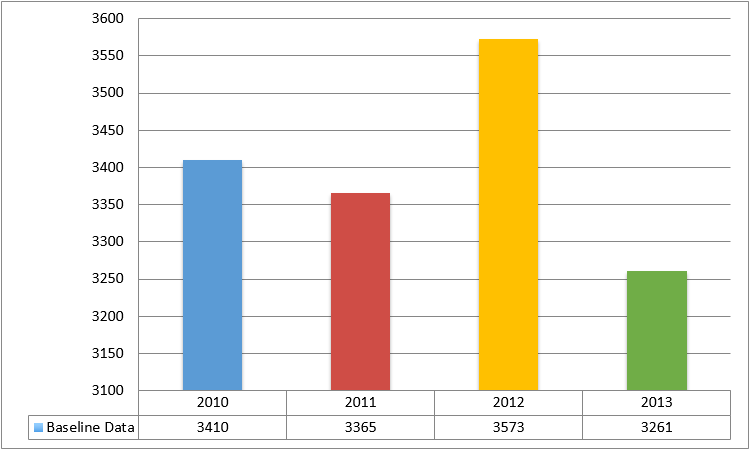Rights Protection Mechanisms
Back to CCT Metrics Reporting Page
These metrics are compiled from Uniform Dispute Resolution Procedure (UDRP) and Uniform Rapid Suspension (URS) providers, as well as complaints to ICANN regarding these procedures.
1.9.a. UDRP and URS Cases Filed Against Registrants
The number of cases filed with UDRP and URS providers. [Updated Quarterly] [As of: 7 December, 2018]
| Year | Total |
|---|---|
| 2012 | 3,987 (UDRP) |
| 2013 | 3,371 (UDRP) |
| 2014 | 4,077 (UDRP) & 233 (URS) |
| 2015 | 4,192 (UDRP) & 220 (URS) |
| 2016 | 4,387 (UDRP) & 227 (URS) |
| 2017 | 4,561 (UDRP) & 163 (URS) |
| 2018 | 4,650 (UDRP) & 158 (URS) |
Source: Arbitration provider databases
CCT Review Category: Consumer Trust
1.9.b. Combined UDRP and URS Complaints to ICANN
This metric reports on the number of complaints to ICANN concerning implementation of UDRP and URS decisions. [Updated Quarterly] [As of: 8 January, 2018]
| Year | UDRP Complaints |
|---|---|
| 2012 | 658 |
| 2013 | 408 |
| 2014 | 227 |
| 2015 | 250 |
| 2016 | 235 |
| 2017 | 213 |
| Year | URS Complaints |
|---|---|
| 2014 | 19 |
| 2015 | 11 |
| 2016 | 9 |
| 2017 | 12 |
Source: ICANN databases
CCT Review Category: Consumer Trust
1.10 Combined UDRP and URS Decisions Against Registrants
The number of UDRP and URS decisions against registrants. [Updated Quarterly] [As of: 7 December, 2018]
UDRP Baseline Data:
Combined UDRP & URS Data Post Expansion:
Source: Arbitration provider databases (Note: Some arbitration providers also provide data on ccTLDs. This data does not reflect ccTLD cases. This data is subject to change on the arbitration provider databases. To access the most up-to-date data please review the databases here: List of Approved Dispute Resolution Providers. Please note that only the Asia Domain Name Dispute Resolution Centre and the National Arbitration Forum provide URS arbitration services and UDRP services.)
CCT Review Category: Consumer Trust
1.12 Registry Restrictions Dispute Resolutions Procedure (RRDRP) Decisions
The RRDRP is intended to address circumstances in which a community-based New gTLD Registry Operator deviates from the registration restrictions outlined in its Registry Agreement. [Updated Annually]
As of 7 December 2018 there have been no RRDRP cases.
Source: The National Arbitration Forum
CCT Review Category: Consumer Trust
2.8 Share of Sunrise Registrations and Domain Blocks to Total Registrations in Each TLD
The number of sunrise registrations in new gTLDs. Domain blocks are defined as commercial blocking services offered by registries. Consolidated data on domain blocks is not currently available. The data presented here only reports on the share of sunrise registrations to total registrations in each TLD.
Metric 2.8 Excel File [XLSX, 24 KB] (Updated: 7 December, 2018)
Source: Trademark Database Reports
CCT Review Category: Consumer Choice


